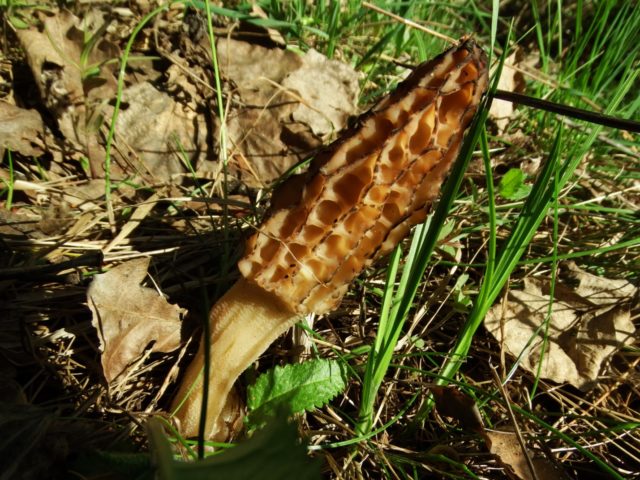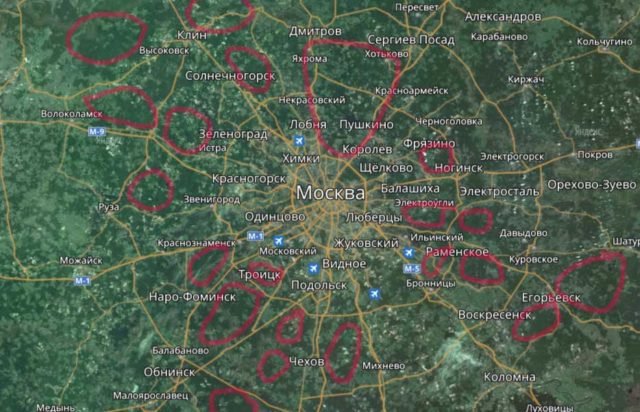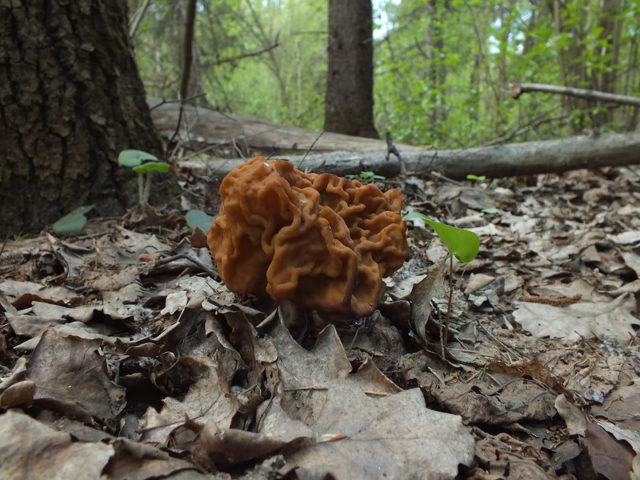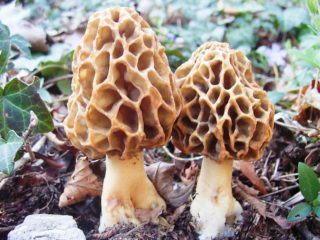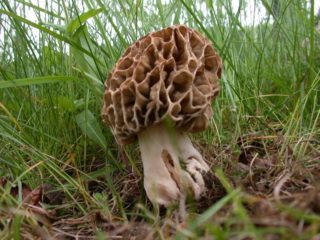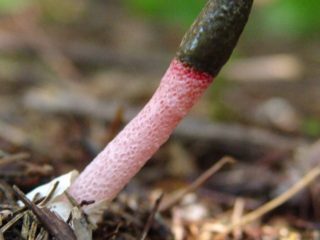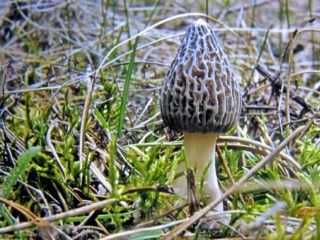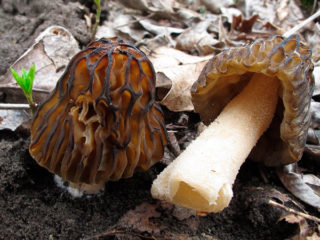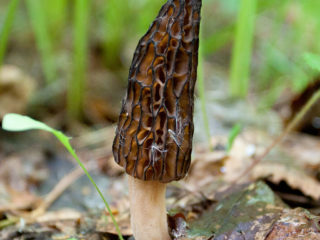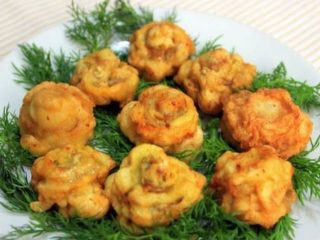Content
Where you can collect morels in the Moscow region, every mushroom picker should know, since many species of morels are not only edible, but also tasty. The widespread opinion that this variety is not suitable for consumption is based on the content of gyrometrin poison in its composition, which, however, leaves the product together with water during the first boil for 10-15 minutes.
Rules for collecting morel mushrooms in the Moscow region
Morels in the Moscow region have become one of those mushrooms for which there is a real hunt. Many mushroom pickers and just curious residents learned about the medicinal properties of this mushroom, and now everyone wants to get it not only for eating and preparing a medicine, but also in order to plant it at their summer cottage.
In view of the large number of those who wish, it is worth going to those places of the Moscow region where there are at least few harvest hunters. In addition, it is worth knowing that by the end of June there are not so many of these mushrooms, and in the fall they completely disappear. Do not forget that morel can be easily confused with common veselka, which is poisonous and grows in late summer and autumn, so many inexperienced mushroom pickers can confuse it with an edible specimen.
Don't forget about safety rules. If there is no exact certainty in the form of a mushroom, you should not take it. Recently, mushroom pickers have been collecting lines and passing them off as edible morels. Representatives of this variety are distinguished by their appearance (very similar to brains), and they can be eaten only after a very long heat treatment.
When morels grow in the Moscow region
You can pick morel mushrooms in the Moscow Region already in mid-April. But there are no exact dates, much depends on the weather conditions. Therefore, experienced mushroom pickers are advised to go on a "quiet hunt" from April to mid-June.
In order not to be mistaken with the timing, it is worth paying attention to some signs associated with the appearance of a crop in the Moscow region:
- The first grass appeared - morel began to grow.
- Aspen fluffed up the earrings - you can go out for mushrooms.
- Night blindness has bloomed - it's time to move forward for morels.
Where to look for morels in the Moscow region
The list of places where morels grow in the Moscow region is indicated on the mushroom map:
- New Grishino (Dmitrovsky district, in the north).
- Akulovo (a forest near Kubinka, where the Trasna River flows, as well as the Pesochny Ruchey - not far from Moscow).
- Panino and Sandarovo (Chekhov).
- Lyubyatino, Amelfino, Shishkino (near Volokolamsk).
- Malaya Borshchevka (Streams in the Klinsky District, Sloboda).
- Pochinki, Danki (Serpukhov, Prioksky forests are some of the most mushroom places).
- Brekhovskaya, Tarakanovo (Yegoryevsk).
- Kokovino, Oreshki (Ozerninsky reservoir area).
- Nazimikha, Toporkovo, Novaya Sloboda, Ulitkino (Fryazino).
- Zakharovo, Maryino (Elektrougli).
- Flower, Puchkov, Malinovka, Novo-Spasskoye (Troitsk).
- Zosimova Pustyn, Machikhino, Belousovo, Trinity (near Naro-Fominsk).
- Gubino and Belozersky (Ramenskiy, forest, which is located directly near the airfield).
A map of morels in the Moscow region will help you navigate with mushroom places. The most sensible solution would be a trip to the south or west of the Moscow region (on the presented map, these places are circled in red). It is there that you can find plantations and forests, manes and islets on which the desired species grows.
Where morels grow in the Moscow region
Representatives of the Morech family grow in any forests, they even exist in the capital's parks (Teply Stan). Therefore, in the Moscow region, you can choose any forest where pine trees are present. Moreover, they should not form the basis of planting, since morels in the Moscow region still grow mostly in deciduous forests, and the presence of pines is simply a good addition to their growth and reproduction.
When choosing a place for "quiet hunting", you need to know a few signs of where to collect morels in the Moscow region:
- you need to focus on places where there are sandy soils: it is they that warm up faster and allow the mushrooms to "breathe";
- loves culture and moisture, so it is best to choose plantings and hillocks that are heavily overgrown with grass;
- it also grows on peat soils, so the proximity of the bog can also become a reference point for lovers of "quiet hunting";
- You can fill a basket not only in the forest, but also in abandoned apple orchards, on neglected summer cottages and along country roads.
Safety precautions for collecting morels in the forest
Despite the fact that the forests near Moscow are not taiga, you can easily get lost even in them. Therefore, to prevent this from happening, when collecting morels, you need to follow a number of simple rules:
- You should not go to the forest alone. Even if the mushroom picker leaves alone, he must inform his friends and family about his intentions and the approximate time of return. It is also worth discussing the approximate route.
- You need to take with you the minimum, urgently needed supply of things - matches, some food, water, a compass and a knife.
- A mobile phone will not be superfluous. It should be fully charged when you leave home, with enough money in your account.
- If an elderly person or someone suffering from a disease is sent to the forest, it is necessary to take medications with you, even if the time for taking them, according to the mushroom picker, will come after returning from a quiet hunt.
- It is better to choose something bright and catchy from clothes. A great option is things with reflective elements.
- When moving through the forest, it is important to remember some features - broken trees, flowing streams, etc. This will help rescuers to more accurately determine the location of the mushroom picker if he does get lost.
Conclusion
Morels in the Moscow region are not uncommon. Therefore, everyone can go out on a quiet hunt and replenish their stocks with these tasty healthy mushrooms.
